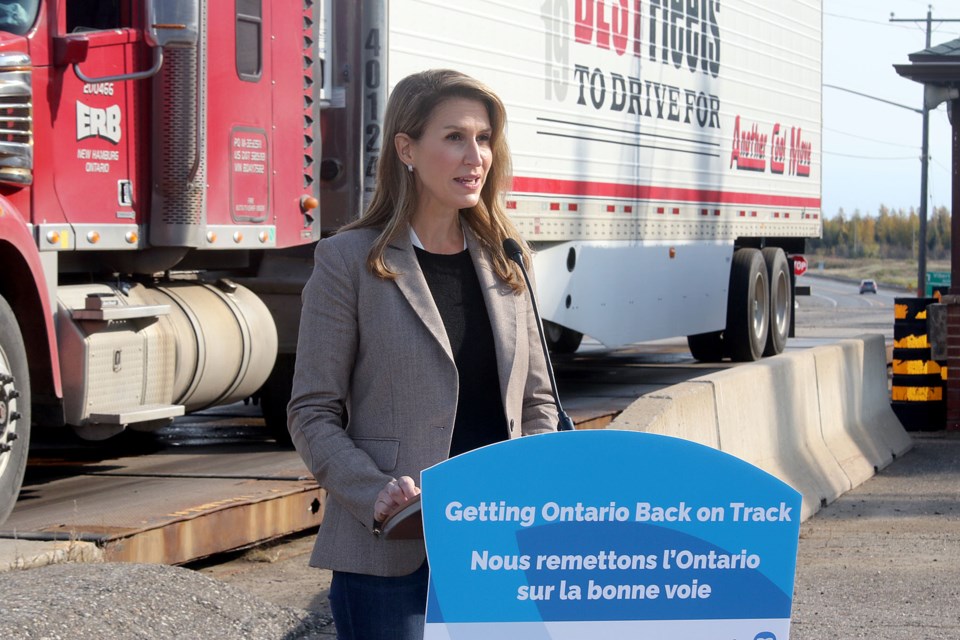OLIVER PAIPOONGE – COVID-19 was an eye-opener on Ontario’s highways.
Restaurants and gas bars routinely turned truck drivers in need of restroom stops away during the early stages of the pandemic, leaving them to rely on a network of provincial rest stops that quickly proved to be inadequate, especially in northern Ontario.
Minister of Transportation Caroline Mulroney on Friday said the province will step up to ensure if there is another shutdown, truckers and motorists aren’t left searching near and far for an acceptable place to use a restroom or catch some much needed rest along northern Ontario’s busy highway network.
Mulroney, speaking at a weigh station in Oliver Paipoonge, said the province will repair or expand 10 existing facilities along provincial highways, adding four new ones, the goal to have work completed on as many as possible by 2021.
The rest stop at the Ontario and Manitoba border will see enhanced lighting, renovations of interior and exterior washrooms, improved heating, wi-fi availability and new information kiosks.
Others on the planned list of sites getting improvements include rest areas in Rossport, Lodge Lake Manitouwadge, and Batchawana on Highway 17, and Leonard Lake, Kiotz Lake and Hearst on Highway 11.
New rest areas will be built at Mulligan Lake along Highway 599, in Terrace Bay on Highway 17, at the junction of Highway 11 and Highway 64 and a new year-round facility near Cochrane at Highway 11 and Highway 655.
The Manitouwadge project, which is owned by the municipality, will see all-season washrooms installed, a new entrance built and improvements made to lighting and parking capacity. The site will also serve as a drop-off and pick-up spot for the Ontario Northland bus line.
Other stops will include a move to all-season washrooms and increased capacity for both commercial and passenger vehicles.
“The current state of our northern rest areas is unacceptable,” Mulroney said. “That’s why we’ve acted quickly to get shovels in the ground and we have actually started construction on four of these projects already, including the rest area near the Manitoba border.
“I’m proud to say that eight out of the 14 projects will be completed by 2021.”
Mulroney said the projects will also include plans to combat human trafficking along Ontario highways.
“Certain rest areas will include anti human-trafficking measures, such as improved lighting, posting information and adding security cameras,” the minister said.
The move sits well with Stephen Laskowski, president of the Canadian Trucking Alliance and the Ontario Trucking Association, noting it was dark times for truckers in particular when the lockdowns went into effect and they were told by many establishments they weren’t welcome.
“I can tell you, as a commercial vehicle operator, and the men and women out there, these aren’t just rest areas. They’re critically important to how they execute their job in a safe and reliable manner,” Laskowski said.
“I can tell you the government of Ontario stood shoulder to shoulder with the trucking industry to make sure that our hard-working men and women could execute their job, move the economy and do it in a safe way. It wasn’t without it’s challenges, but those challenges were identified.”
– TBNewsWatch
